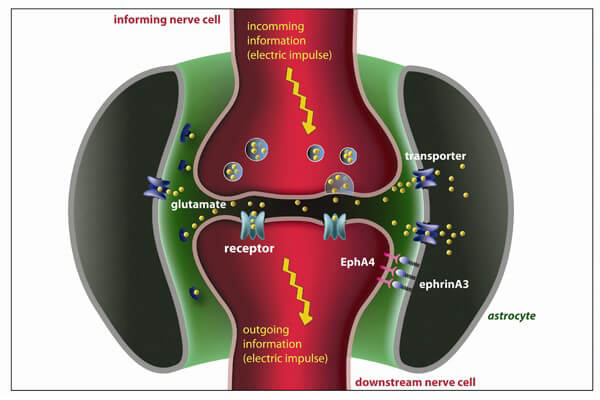MemPro™ EPHA4
Creative Biostructure provides custom MemPro™ gene-to-structure services for EPHA4.
Erythropoietin-producing hepatocellular receptor (EPH receptor) is a receptor tyrosine kinase (RTK) that plays a vital role in developmental processes. Due to different affinity to endogenous ligands ephrin A and B, EPH receptors are divided into two classes. EPHA4 is a member of the A subclass of Eph receptor tyrosine kinases and interacts with both A-type and B-type ephrins. The EphA4 receptor is highly expressed in the nervous system, and recent findings suggest that its signaling activity hinders neural repair and exacerbates certain neurodegenerative processes.
Central to its signaling ability, EphA4 has a ligand-binding domain (LBD) at the N terminus of its extracellular region and a tyrosine kinase domain in its cytoplasmic region. There are two types of strategies to inhibit EPHA4 activities involves the use of either antagonists or kinase inhibitors that target LBD. However, since kinase inhibitors typically targets multiple kinases due to the high conservation of the ATP binding pocket, it is much difficult to identify kinase inhibitors selective for EphA4. Small molecule antagonists that selectively target EphA4 have been developed include three dodecapeptides identified by phage display. KYL, a liner peptide, appears promising effects on EPHA4 and shows some functions in therapeutic treatment.
 Figure 1. Location of EPHA4 in neuron cells
Figure 1. Location of EPHA4 in neuron cells
EphA4 has also been implicated in cancer progression. For example, EphA4 downregulation studies have suggested a role for EphA4 in leukemia, prostate, pancreatic, and gastric cancer cell growth and in liver cancer metastasis. High EphA4 expression has also been correlated with shorter survival in breast and gastric cancer patients. Finally, EphA4 can enhance the oncogenic effects of fibroblast growth factor receptor 1 in glioblastoma cells.
Amyotrophic lateral sclerosis (ALS) is a progressive degenerative disorder affecting mainly motor neurons. Since ephrin family is involved in axonal repulsion and is a key player in the establishment of topographical maps, EPHA4 has been proved to be correlated within synapse formation and the regulation of long-term synaptic plasticity and memory. Thus, the effect of deletion or inhibition of EPHA4 in ALS animal model has been generated and then indicates that they completely rescued mutant SOD-induced axonopathy and attenuates motor neuron degeneration. The mechanism is suggested to be related to alter gliosis or Glt-1 expression level. Though some observations have suggest that the protective effect of inhibition of the Epha4 receptor is independent of the cause of degeneration and that the ephrin system may be a generic determinant of vulnerability of neurons to degeneration, the use of EPHA4 antagonists still show pharmaceutical functions and require more preclinical study.
References:
Lamberto I, Lechtenberg B C, Olson E J, et al. Development and structural analysis of a nanomolar cyclic peptide antagonist for the EphA4 receptor[J]. ACS chemical biology, 2014, 9(12): 2787-2795.
Van Hoecke A, Schoonaert L, Lemmens R, et al. EPHA4 is a disease modifier of amyotrophic lateral sclerosis in animal models and in humans[J]. Nature medicine, 2012, 18(9): 1418-1422.
